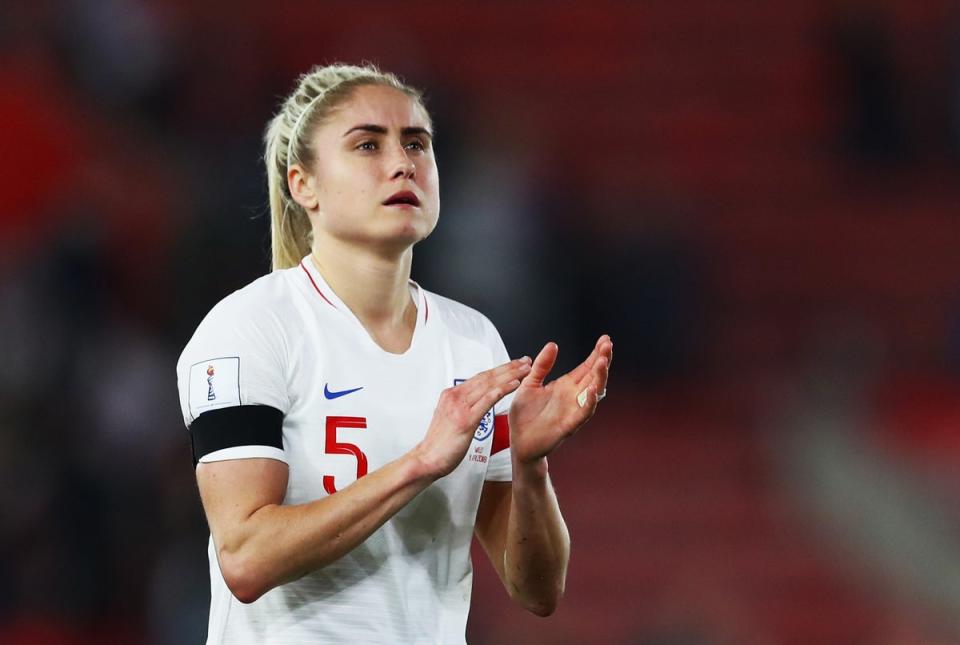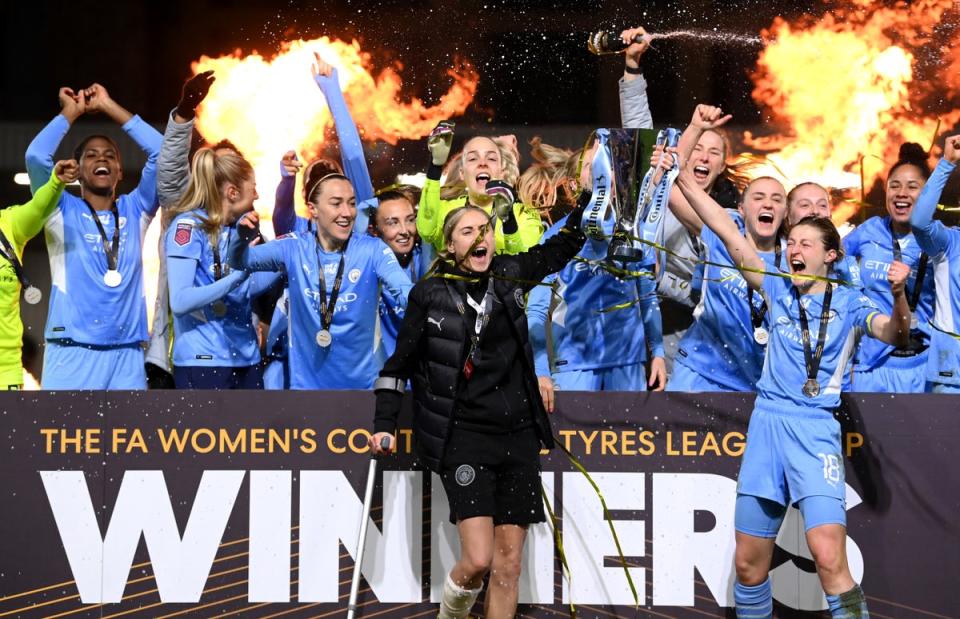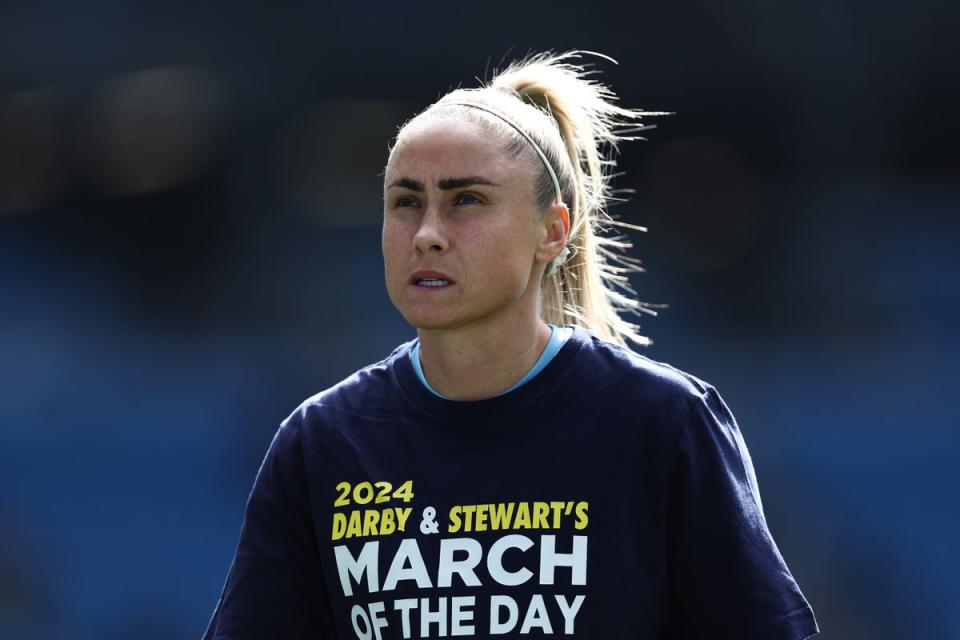Steph Houghton: The ‘icon’ of the game leaves women’s football in a much better place

Steph Houghton’s announcement of her decision to retire from football might have been low-key, but the impact she has left on the game was not.
The Manchester City centre-back and former England captain deserved the plaudits from all areas of the game for her two-decade long career spanning the course of the growth of women’s football.
She was the sole survivor from City’s first professional team which launched a decade ago and her 20-year career not only spanned four clubs, Sunderland, Leeds, Arsenal and Manchester City, but also the rapid professionalisation of the sport.
“Steph is – without question – an icon of the game,” City manager Gareth Taylor said.
“Although her professional career on the pitch is now coming to an end, her legacy will be felt for so many years to come. She’s paved the way for so many to thrive in the future.
“Steph has lived and breathed football for such a long time, and she leaves it in the strongest place it has ever been – a true testament to her leadership, hard work, talent, and dedication.
“I feel incredibly privileged to have been able to work with her since 2020 and know her name will be written into the history books as a true footballing great.”

When Houghton hangs up her boots she will be not only City’s record appearance holder, but its most decorated player. Throughout her career, she won two league titles with Arsenal, as well as two FA Cups and three League Cups before adding another title, three FA Cups and four League Cups with City.
"There is no easy way to say it, but I am retiring from football at the end of the current WSL season," Houghton wrote on X. "Taking the decision to retire is such a difficult thing to do. Whilst age comes to every player, it makes it no easier having to say the words out loud. Football has been my life; my passion and I have loved the career I have had.
"My biggest thanks, appreciation and love belongs to my husband and inspiration, Stephen, my mam, my dad, my brother Stuart, the rest of my family, Matthew Buck, and all my closest friends for your love, guidance, understanding and support - it has been my constant."
For England, Houghton made her debut on March 8 2007 against Russia at Milton Keynes, and started the next game against Scotland at Adams Park.
When the game first turned professional in 2009, Houghton was one of the first 17 female players awarded central contracts by the Football Association, and in 2014 became captain under then-manager Mark Sampson.
Baroness Sue Campbell, The FA’s Director of Women’s Football: “Steph has played a huge part in the growth of the women’s game and her impact transcends not just football but across sport. She has been the epitome of a role model.”
Houghton earned her 100th England cap in November 2018, and finishes with 121 caps to her name, with her last match for the Lionesses having come back in 2021. In 2012, Houghton also scored three goals for Great Britain, and she also played in the 2020 Summer Olympics.

However, it remains to be a disappointment to many of Houghton’s fans that Sarina Wiegman never created an opportunity for the defender to extend her international career during the side’s most successful period, including their Women’s Euros success.
Houghton was awarded an MBE in the 2016 New Year Honours list for her services to football and was the poster figure for the Lionesses, and a household name before Euro 2022.
Her exploits spanned beyond the football pitch however. Her husband, former Bradford City footballer Stephen Darby, suffers from motor neurone disease. Houghton helped raise awareness of the illness, and the weekend before announcing her retirement, she helped complete a 178-mile march from Bradford to Liverpool, raising £130,000.
Houghton was a public face of the sport long before the likes of Leah Williamson and Beth Mead appeared on marketing billboards, and she will leave the sport having left a lasting impression. From playing at Milton Keynes in front of 5,200 people, women’s football can now sell out Wembley, partly because of trailblazers like Houghton.

